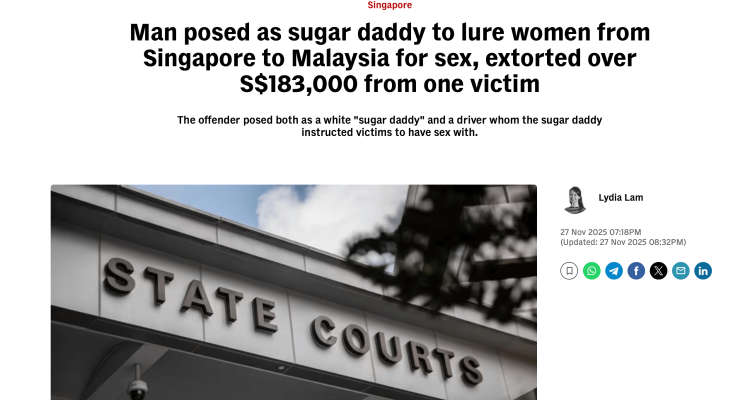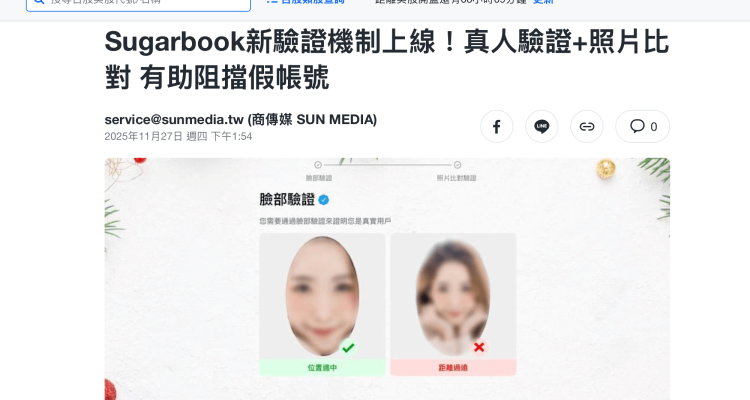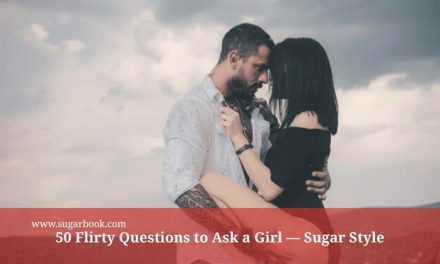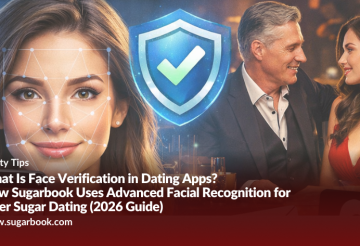
Meet successful sugar daddies and confident sugar babies on the world’s leading sugar dating app. Join free today.
Contents
- Sugar Dating in 2025 – What the Recent Singapore Case Shows About the Need for Verification & Safety
- When “Sugar Daddy” Isn’t Real – The CNA Case That Shocked Many
- Why This Matters – Online Dating & Sugar Dating Are Vulnerable
- What a Trusted, Verified Sugar Dating Platform Looks Like
- What Users Should Do – Safety Habits & Responsible Use
- Why Verification Doesn’t Guarantee Perfect Safety – But Greatly Reduces Risk
- Conclusion: Safety Is Non-Negotiable in Sugar Dating
- Key Takeaways
- Frequently Asked Questions
- Q1: How can I tell if a sugar-dating profile is fake or a scam?
- Q2: Does identity or face verification on a dating site make it truly safe?
- Q3: What safety steps should I follow when messaging or meeting someone from a sugar-dating site?
- Q4: Is it safer to use established sugar-dating platforms rather than social media or random apps?
- Q5: What should I do if someone I met online starts asking for money, secret favors, or tries to rush the relationship?
Sugar Dating in 2025 – What the Recent Singapore Case Shows About the Need for Verification & Safety
Imagine matching online with someone who seems perfect – flattering photos, smooth conversation, and promises of generosity. You might think you’ve found a genuine sugar daddy. But as a recent court case reveals, what looks real might hide deception, danger and betrayal.
Always choose a verified platform with real-user face & ID verification, keep chats inside the app, avoid sending money, and meet safely in public.
When “Sugar Daddy” Isn’t Real – The CNA Case That Shocked Many
Just recently, Channel News Asia reported that a 38-year-old man allegedly posed as a Caucasian “sugar daddy” online, lured women from Singapore to Malaysia, and exploited them – forcing sex, staging deception, and extorting more than S$183,000 from a victim. CNA

Screen capture of Channel News Asia article reporting a man posing as a “sugar daddy” to lure and extort victims – November 2025
According to the report, the man used fake identity, manipulated victims into sending intimate media, then coerced them under threat of leaking the media – pretending sometimes to be the “sugar daddy,” other times a “driver,” to confuse and control victims.
This case is a grim example of how dangerous dating scams can turn – what starts as flirtation and promise can end in exploitation, trauma and financial loss.
Why This Matters – Online Dating & Sugar Dating Are Vulnerable
-
In online or sugar-dating environments, anonymity and distance make deception easier. Scammers may adopt fake personas, steal photos, or misrepresent their backgrounds.
-
Once trust is built – often quickly via charm or flattery – victims may be pressured into moving conversations off-app, losing platform safeguards.
-
The power imbalance in “sugar-type” arrangements (money + expectations) can exacerbate potential for manipulation or abuse.
Given these risks, verification, transparency, and caution are not optional – they are essential.
What a Trusted, Verified Sugar Dating Platform Looks Like
Recently, Sugarbook launched a new and improved verification mechanism: in addition to standard identity check, the platform now uses live face-recognition and photo-matching verification to ensure that profile photos match a real person before granting a “Verified” badge. Yahoo Finance Taiwan

Yahoo Taiwan article about Sugarbook new face-recognition and identity-verification system – November 2025.
Specifically:
-
A user must pass a “real-person” check using AI-based face recognition, confirming that the livestream/selfie matches a genuine human, and the gender and age correspond to registration data.
-
Then, a second layer “photo-matching” asks users to upload a verification photo, which the system compares with their profile images to ensure consistency and prevent stolen or misused photos. Only after both are successful does the account receive a “Verified” badge.
With this verification process, the system ensures the profile picture matches the real user. That way, it becomes much harder for someone to use the wrong gender, a fake photo, or a shared/fake account, which significantly helps improve safety and trust.
What Users Should Do – Safety Habits & Responsible Use
Even with verification, safety relies heavily on users’ caution and judgment. These practices greatly reduce risk:
-
Keep first interactions on the platform. Avoid rushing to external apps; stay within verified messaging until you feel trust is genuine.
-
Use video or voice calls early. Real-time interaction helps verify identity beyond static photos.
-
Never send money, gifts or personal financial info too soon. Treat any early “financial promises” with caution — they’re a common red flag.
-
Meet in public places first (if you meet offline). Never accept overnight stay or private meet-ups at first without full trust.
-
Watch for inconsistencies. Unrealistically perfect photos, reluctance to verify, pressure for secrecy or fast commitments – all merit skepticism.
-
Report suspect behavior immediately. A reputable platform should offer a clear reporting or blocking mechanism.
Why Verification Doesn’t Guarantee Perfect Safety – But Greatly Reduces Risk

Sugarbook – World’s #1 Sugar Daddy Site Banner
No system is foolproof: face-recognition and photo-matching improve safety, but cannot guarantee moral integrity, respect, or ethical behaviour. Scammers may still try subtle manipulations off-platform, or attempt coercion after trust is built.
However, these technical safety layers raise the bar significantly: they filter out anonymous or fake-photo-based accounts, make it harder for abusers to pose as “sugar daddies,” and contribute to a safer, more transparent dating environment.
Conclusion: Safety Is Non-Negotiable in Sugar Dating
The recent Singapore case reminds us: behind some “sugar daddy” profiles lurk deception, manipulation, and abuse. If you consider sugar dating – or any form of online dating – prioritize verification, transparency and personal responsibility.
Platforms like Sugarbook, with advanced face-recognition and photo-matching, show how technology and verification can help protect users. But your own judgment – keeping conversations within the platform, verifying identity, avoiding upfront financial commitments – remains your strongest safeguard.
If you choose to explore sugar dating, do it wisely, cautiously – and always with respect for yourself and others. Real connections begin with real identities, not fake screens.
Key Takeaways
- Online sugar-dating scams – like the recent Singapore case – show how fake “sugar daddy” profiles can lead to serious risks.
- Using a verified sugar-dating platform with face recognition and ID/photo matching helps filter out fake accounts.
- Keep early conversations within the platform, use video or voice calls to confirm identity, and avoid sending money or personal info.
- Always meet first in public places, and remain alert to red flags: unrealistic promises, pressure, secrecy or insistence on external transfers.
- Verification tools improve safety, but personal vigilance remains the most important defense.

Sugarbook connects successful men and confident Sugar Babies seeking transparent, beneficial for both sides
Frequently Asked Questions
Q1: How can I tell if a sugar-dating profile is fake or a scam?
Look for warning signs such as overly polished or unrealistic photos, minimal personal info, vague or inconsistent stories, requests to move off-app quickly, or early demands for money/gifts.
Q2: Does identity or face verification on a dating site make it truly safe?
Verification (like ID check, live selfie or photo-matching) helps significantly by filtering out fake accounts and bots — but it’s not a guarantee. Users still need to stay alert.
Q3: What safety steps should I follow when messaging or meeting someone from a sugar-dating site?
Keep initial conversations inside the app, use video or voice calls to confirm identity before sharing personal info, never send money upfront, plan first meetings in public places, and trust your instincts if something feels off.
Yes. Reputable sugar-dating platforms like Sugarbook usually have verification, moderation, and reporting tools – reducing likelihood of fake profiles, scams, or malicious behavior.
Q5: What should I do if someone I met online starts asking for money, secret favors, or tries to rush the relationship?
Stop communication, block/report the user, and never send money or sensitive personal data. This behavior is a common red flag for scams or exploitation.

Meet successful sugar daddies and confident sugar babies on the world’s leading sugar dating app. Join free today.














Hello , Admin
Mostly of girls age between 18-24 have fake profiles here and asking for money, sending cashapp UDs And Telegram information for offline apps conversations request. Most of the women in the profile have fake profiles pics and information. I dont know how Your system giving access to them but they are here and mostly selling the Escort service business . I joined this Network for finding a real companion but they are all fake .